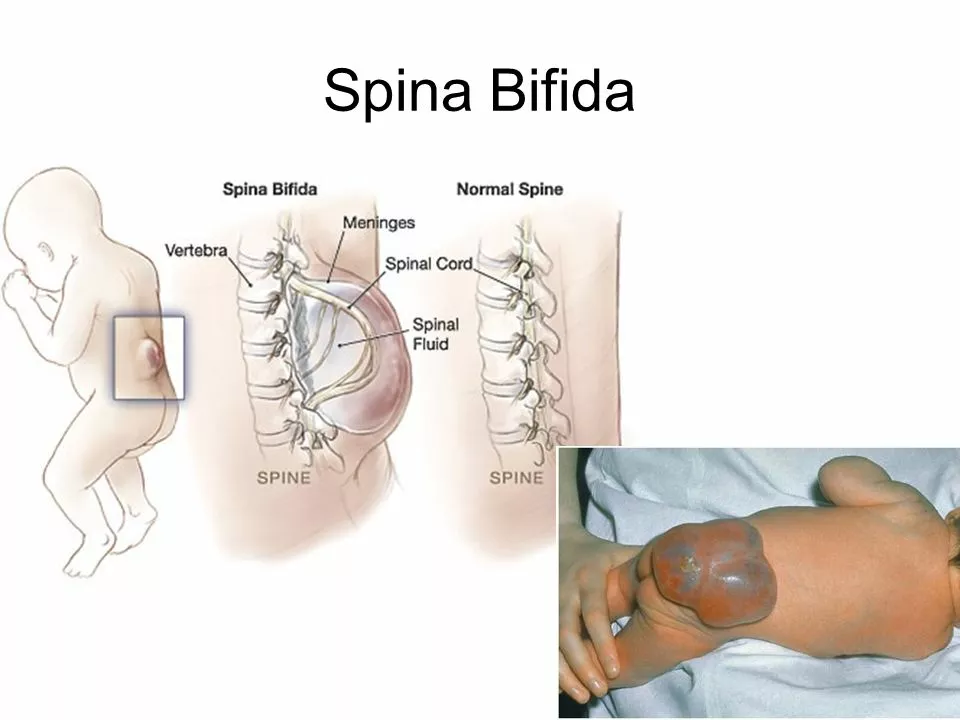The connection between spina bifida and bladder and bowel problems
 Apr, 29 2023
Apr, 29 2023
Understanding Spina Bifida and Its Effects
As someone who has always been intrigued by the complexities of the human body, I have taken a keen interest in understanding the various conditions that affect individuals differently. One such condition is spina bifida, a congenital disability that affects the spine and leads to a range of complications. In this article, I will be diving deep into the connection between spina bifida and bladder and bowel problems, allowing you to better understand the condition and its impact on those who live with it.
The Basics of Spina Bifida
Before we explore the connection between spina bifida and bladder and bowel problems, it is essential to understand what spina bifida is and how it affects the body. Spina bifida is a neural tube defect that occurs during the early stages of pregnancy when the spinal column does not close completely. This results in an opening in the spine, which can lead to various degrees of nerve damage, depending on the severity of the condition.
There are three main types of spina bifida: spina bifida occulta, meningocele, and myelomeningocele. Spina bifida occulta is the mildest form and typically does not cause any symptoms. Meningocele involves a sac filled with fluid protruding through the opening in the spine. This type can cause mild symptoms but does not usually lead to significant nerve damage. Myelomeningocele, the most severe form, occurs when the spinal cord and nerves protrude through the opening, often leading to severe nerve damage and a range of complications.
How Spina Bifida Affects Bladder Function
One of the primary ways that spina bifida affects individuals is through its impact on bladder function. The nerves that control the bladder are located in the lower part of the spinal cord. When spina bifida damages these nerves, it can lead to a range of bladder-related issues, such as urinary incontinence, urinary retention, and frequent urinary tract infections (UTIs).
Urinary incontinence occurs when a person is unable to control their bladder, leading to involuntary leakage of urine. On the other hand, urinary retention is when a person is unable to completely empty their bladder, which can cause discomfort and increase the risk of UTIs. Both of these issues can have a significant impact on a person's quality of life, making it essential to address and manage them effectively.
How Spina Bifida Affects Bowel Function
Similar to bladder function, the nerves that control bowel function are also located in the lower part of the spinal cord. When spina bifida damages these nerves, it can lead to bowel-related issues, such as constipation, fecal incontinence, and a lack of sensation in the rectal area.
Constipation is common among individuals with spina bifida, as the lack of nerve function in the bowel can make it difficult to regulate bowel movements. Fecal incontinence, or the inability to control bowel movements, can also occur, leading to involuntary leakage of stool. Both of these issues can significantly affect a person's daily life, making it crucial to find effective ways to manage them.
Addressing Bladder and Bowel Issues in Spina Bifida
Fortunately, there are several ways to address bladder and bowel issues in individuals with spina bifida. For bladder issues, options may include medication, catheterization, and surgical interventions. Medications can help relax the bladder muscles and improve overall bladder function. Catheterization, either intermittent or indwelling, can help individuals with urinary retention by allowing them to empty their bladder regularly. Surgical interventions may be necessary for more severe cases, such as bladder augmentation or creating a urinary diversion.
For bowel issues, treatment options may include a high-fiber diet, medication, bowel management programs, and surgical interventions. A high-fiber diet can help improve bowel regularity and prevent constipation. Medications such as stool softeners or laxatives can also help manage constipation. Bowel management programs, which involve scheduled bowel movements and the use of enemas or suppositories, can help individuals maintain regular bowel function. Surgical interventions, such as a colostomy, may be necessary in more severe cases.
Preventing UTIs and Maintaining Hygiene
Preventing UTIs and maintaining good hygiene is crucial for individuals with spina bifida who experience bladder and bowel issues. Practicing proper catheter care, such as cleaning the catheter and changing it regularly, can help reduce the risk of UTIs. Drinking plenty of fluids can also help flush out bacteria and keep the urinary system healthy.
Maintaining proper hygiene is essential for preventing skin breakdown and infections in the perianal area. Regularly cleaning the area with mild soap and water, as well as using barrier creams, can help protect the skin and keep it healthy.
The Importance of a Supportive Healthcare Team
Having a supportive healthcare team is vital for individuals with spina bifida who experience bladder and bowel issues. A team of specialists, including urologists, gastroenterologists, and physical therapists, can help create a comprehensive treatment plan tailored to each individual's needs. Regular check-ups and communication with healthcare providers can ensure that any issues are addressed promptly and that the treatment plan remains effective.
Conclusion
Understanding the connection between spina bifida and bladder and bowel problems is essential for effectively managing the condition and improving the quality of life for those affected. By addressing these issues through a combination of medical interventions, lifestyle changes, and a supportive healthcare team, individuals with spina bifida can lead fulfilling, healthy lives.


Eli Grinvald
May 1, 2023 AT 11:01Alexis Hernandez
May 1, 2023 AT 16:28brajagopal debbarma
May 2, 2023 AT 01:57Carly Smith
May 2, 2023 AT 20:33Kurt Stallings
May 3, 2023 AT 04:32Angie Creed
May 3, 2023 AT 16:28Michael Ferguson
May 4, 2023 AT 12:00Patrick Klepek
May 4, 2023 AT 21:00Caden Little
May 6, 2023 AT 01:25Sebastian Brice
May 7, 2023 AT 16:34Jim Aondongu
May 8, 2023 AT 09:59Michael Schaller
May 9, 2023 AT 07:16